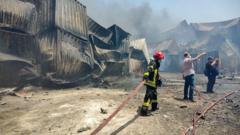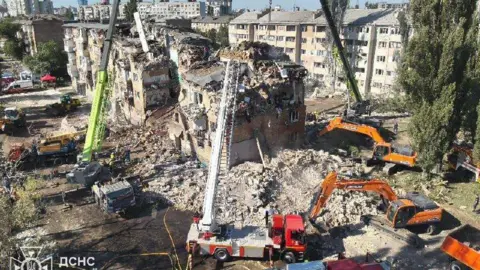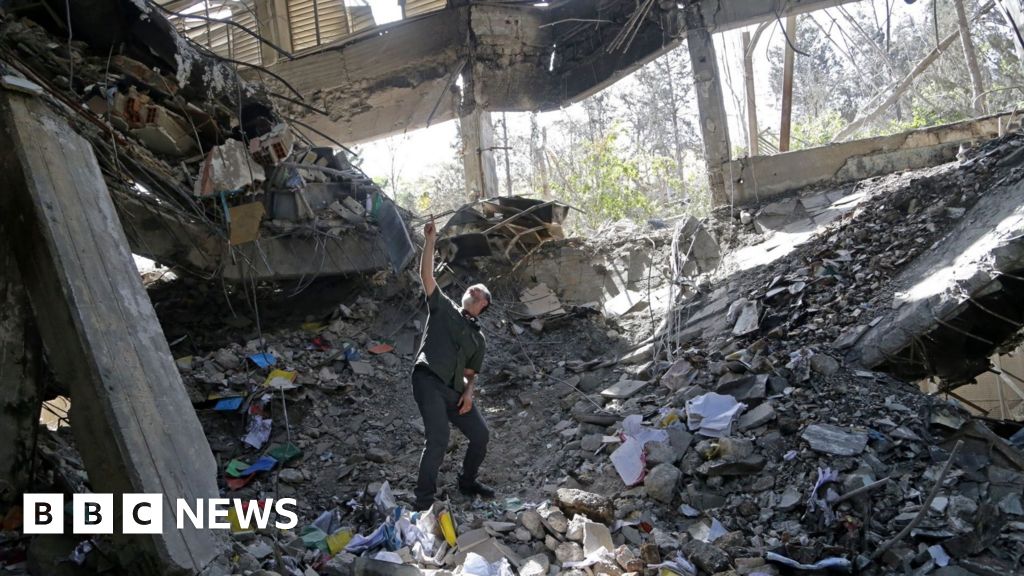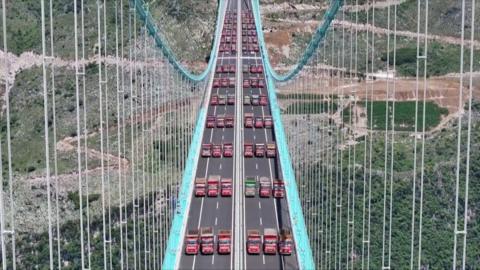Iran's interior minister has stated that negligence played a crucial role in the substantial explosion and subsequent fire that occurred at the country's largest container port, with casualties now exceeding 70. Eskandar Momeni reported that the blast in Bandar Abbas on Saturday was linked to "shortcomings, including non-compliance with safety protocols and negligence."
He indicated that "some individuals deemed responsible" were being summoned for questioning regarding the incident. Initial investigations by customs authorities revealed that fire erupted from imported cargo, resulting in the explosion. However, the defense ministry has dismissed external claims suggesting the involvement of missile fuel chemical shipments.
On Monday, Hormozgan province's crisis management director, Mehrdad Hassanzadeh, noted that firefighting operations at the port were nearing conclusion. Hormozgan Governor Mohammad Ashouri Taziani further elaborated that cleanup efforts could extend for several days, predicting a return to normalcy for the port within a span of one to two weeks. He estimated that approximately 1,500 hectares (3,700 acres), or nearly two-thirds of the port, suffered significant damages due to the blast.
The Customs Administration disclosed that the cargo in question had not been adequately registered or declared prior to the explosion, as reported by the Isna news agency. The CEO of Sina Marine and Port Services Development Company, who operates in the affected area, attributed the incident to "a repeated and catastrophic error involving false declarations of hazardous goods."
While the Iranian defense ministry has refuted claims that the blast was triggered by mishandling of sodium perchlorate, a solid fuel designated for ballistic missiles, there are conflicting reports. Ambrey Intelligence, a maritime risk consultancy, noted that a shipment of sodium perchlorate arrived at the port last month, suggesting the cause of the explosion was improper handling. Notably, an unnamed source linked to Iran's Revolutionary Guards indicated that sodium perchlorate had indeed detonated during the incident.


















